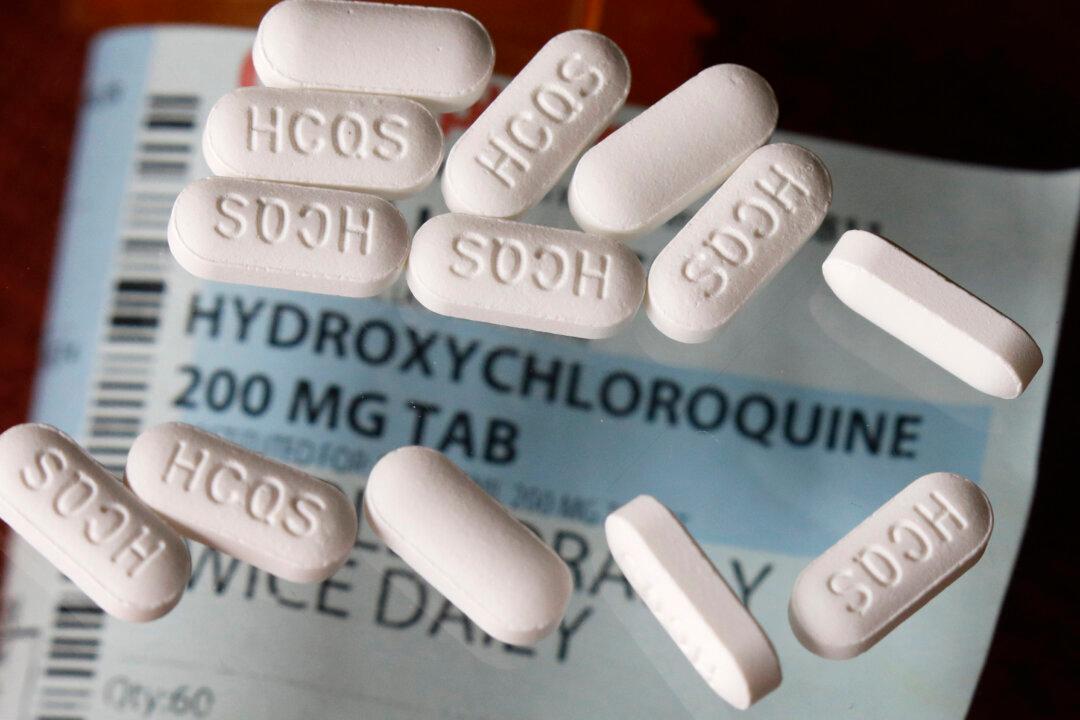A new trial evaluating the combination of hydroxychloroquine and azithromycin against COVID-19 started, a health agency said this week.
The phase two trial will include approximately 2,000 adults who have mild or moderate cases of the new disease, which is caused by the CCP (Chinese Communist Party) virus.





